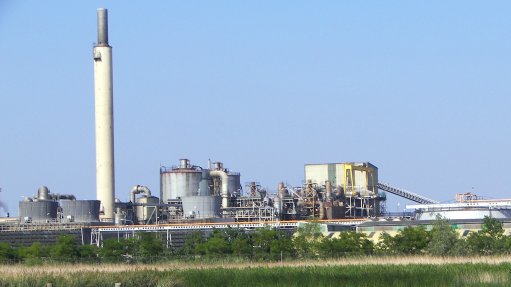
Nyrstar has announced it will halt the giant Budel zinc facility in the Netherlands.
The energy crisis is getting worse, piling pressure on commodities industries that provide the building blocks of the global economy.
Energy-intensive sectors such as steel, fertilisers and aluminium –the most widely used base metal – are being forced to close factories or pass on soaring costs. Materials crucial for electric-car batteries and generating solar power are feeling the pinch, too.
The tumult risks further squeezing households struggling with the worst cost-of-living crisis in decades and pushing economies into recession. If things aren’t bad enough now, they could get much worse this winter, when gas supplies are set to become even tighter.
Here’s how different raw-material sectors are faring so far:
Industrial Metals
Europe has already lost about half of its zinc and aluminium smelting capacity over the past year, and more is set to go offline.
, Norsk Hydro said it plans to shutter an aluminium smelter in Slovakia at the end of this month due to soaring power prices, and Nyrstar announced it will halt the giant Budel zinc facility in the Netherlands. With local exchange stockpiles incredibly low, that may put more dependence on imports to meet demand.
The aluminium sector is also being affected in Sichuan, one of China’s most populous provinces and and where drought is curbing crucial hydropower output. That has forced smelter Henan Zhongfu Industry to stop production for a week for some units there.
US suppliers are also suffering. Major aluminium producer Century Aluminium earlier this year said it was idling its massive Kentucky plant after energy costs reached the point where it was unprofitable to run it.
While copper producers have been less exposed to the energy crisis due to lower consumption, they’re still being squeezed. For example, some are passing on costs to customers through energy surcharges.
Steel
The power cuts in China’s Sichuan have affected more than 70% of local steel mills, either through production halts or rationing. That’s putting pressure on prices of iron-ore, used to make steel.
British Steel is among heavy industry firms hiking prices on the back of soaring energy costs. Though that has worked in the past due to the strength of Europe’s construction industry, it will be more of a challenge this time as a weaker economy darkens demand prospects.
In the US, at least two steel mills have started suspending some operations to cut energy costs.
Green Metals
China’s power crisis means the battery sector should brace for higher costs of key material lithium. Sichuan accounted for more than a fifth of China’s lithium chemical output last year, according to BloombergNEF, and analysts expect prices to rise in the short term.
The province is also important for the output of polysilicon, used in solar panels. The price of silicon metal, which also goes into everything from computer chips to cars, jumped 12% in just a week.
Fertilisers
European fertiliser companies rely on gas to make crucial nutrients and are again having to curtail operations, something that’s also happening in China. Farmers are scrambling to keep the world fed and even higher fertiliser prices and less availability could force them to use less, risking smaller harvests.
At least a quarter of Europe’s nitrogen fertiliser capacity is already thought to have been lost and the International Fertiliser Association forecasts global usage to drop the most since 2008 next season.
Sugar
European sugar giant Suedzucker, which has warned of higher prices as producers pass on costs, said it has emergency plans to switch from gas to other energy sources if Russia halts flows.
But analysts say that could be an expensive process and mean even costlier sugar for consumers, further adding to grocery bills that jumped after global food prices hit record highs.